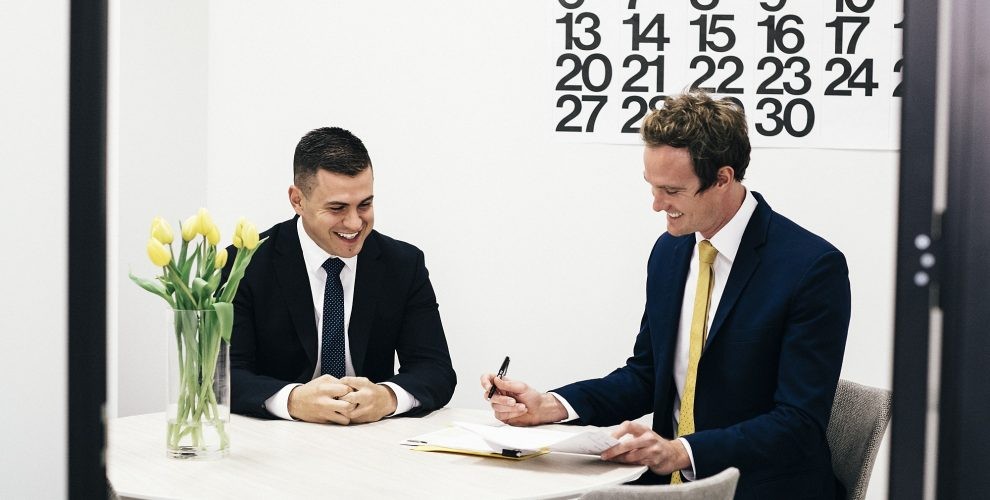 There are 2.03 million property investors in Australia, most of whom only own one property, according to CoreLogic. If you count yourself amongst this group, or you’re looking to purchase an investment soon, you’ll face several challenges before the money starts rolling in.
There are 2.03 million property investors in Australia, most of whom only own one property, according to CoreLogic. If you count yourself amongst this group, or you’re looking to purchase an investment soon, you’ll face several challenges before the money starts rolling in.
Improve your chances of success and make property investment easier by keeping these must-know tips in mind.
1. CHOOSE THE RIGHT PROPERTY, AT A GOOD PRICE
Find a high yielding property and you could be able to cover your entire mortgage with rental income alone.
When choosing a property, you need to look for two things: high rental yields and solid capital growth.
A property’s rental yield is its annual rental income over its cost, a figure which will tell you all you’ll need to know about a property’s cashflow. Find a high yielding property and you could be able to cover your entire mortgage with rental income alone so that you can quickly increase your equity in the property.
Capital gains on the other hand, refer to a property’s value increasing – a profit which is only realised when you eventually sell. To maximise the potential for high rental yields and capital gains you need to buy the right property at the right price.
Do your research online at first. Look at 100-plus properties to get a feel for the area you’re buying in, or to decide on which area is best for you. Research the market in the suburbs you’re considering, looking at rental vacancies, value gains and any developments planned for the future.
After you’ve looked at several properties you’ll have a good idea of what properties in the area are worth so that you can be sure you don’t pay too much. Be sure to have an independent valuation and rental appraisal done before you commit to buying anything to be sure you have a full and accurate idea of the property’s potential as an investment.
2. COVER YOUR BASES WITH BUILDING INSPECTIONS
The average cost of fixing a termite infestation is around $7,000.
Once you’ve whittled your selection down to one or two properties, it’s a good idea to either ask the vendor for copies of recent building and pest inspections or to have these done yourself. Your Mortgage estimates that this will cost between $300 and $600, an investment that’s well worthwhile.
The average cost of fixing a termite infestation is around $7,000, and remedying other problems could cost even more. What’s more, if you don’t have inspections done, problems with the property could continue to arise for years after purchasing, depleting your investment’s returns.
An inspection will ensure you know about any and all issues with the property before you purchase. If you discover issues that are easily fixed you can use these in your negotiations with the vendor to buy at a lower price, or if you discover serious problems you can avoid the property altogether.
3. FIND A GOOD PROPERTY MANAGER AND MORTGAGE BROKER
Get the help you need to make your investment successful.
Many underestimate the work involved in managing an investment property as well as the expertise required to purchase one. Don’t make the same mistake and be sure you get the help you need to make your investment successful from a mortgage broker and a property manager.
A good mortgage broker will help tailor a loan to your situation, potentially find you a lower interest rate, and stick around to offer advice should your situation change. The service is generally completely free, and it could save you thousands of dollars.
A property manager will advertise and show your property, then screen and select tenants. They’ll then perform inspections, take care of all communications with tenants and property maintenance, as well as managing disputes, should they arise. A good property manager will also take care of the difficult process of evicting tenants, or even go to court with you if necessary.
4. THINK ABOUT THE LONG RUN
Property investment is not a get-rich-quick scheme. Instead, you should think of it as a way to grow your wealth over the long term. Make a plan to hold the property for as long as possible – or at least for several years – so that you can build up equity and eventually purchase more property.
Always leave room in your finances should something go wrong, and have a detailed plan for the long term future of your investment. Think in five or 10 year periods, and instead of relying on red-hot capital gains alone to succeed build equity over the long term with the help of rental income.
With the right help, a little caution and a lot of planning your investment is far more likely to succeed. Get in touch with a local real estate agent to get started on your property hunt today.
